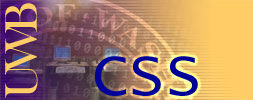|
|
|
XNA Game-Themed CS1 Lab Workbook
|
XNA Game-Themed CS1 Lab Workbook
|
|
|
Release 1.5
6/21/2009
|
This "Laboratory (lab) Workbook" is designed for instructors of
introductory programming (CS1) classes. The materials presented uses video
game-like ("Game-Themed") examples to reinforce fundamental programming
concepts. These game-themed examples are implemented based on a simple library,
XNACS1Lib, such that neither the instructors nor the students are
required to have any background in computer graphics or games.
To begin working with the following materials, you should first follow
this link to ensure that you have installed the proper IDE and XNA V3.0.
This workbook is
divided into three sections:
Section 1. Tutorials on XNACS1Lib:
This section guides you through the basics of working with XNACS1Lib the then presents simple tutorials on
developing slightly more advanced applications.
1.1 Tutorial Guide: overview of tutorials in
Sections 1.2 and 1.3.
1.2 General Tutorials: simple guide on
working with XNACS1Lib:
1.3 Tutorials from Assignments: developing
slightly more advanced applications.
Section 2. XNA Game-Themed CS1 Examples
This section is organized into seven independent topic areas. Instructors can teach their existing CS1 classes without any alterations and assign readings
from one of the following topic areas as lab activities, extra readings, and/or assignments.
Please follow
this link to find out more about XNA Game-Themed CS1 Examples.2.1 Initial Guide
2.2 Basic IO and Variables
2.3 Modules and Functions
2.4 Decision Structures
2.5 Repetition Structures
2.6 Arrays
2.7 Objects and Classes
Section 3: XNA Game-Themed Assignments
This section contains seven sample programming assignment modules. Each module is designed around a "well-known" topic area (e.g., 2D array) and has two accompanied assignments: a console (traditional text-based) version, and a game-themed version. These two versions of the assignment are technically equivalent. The console version can be used as a reference for instructors unfamiliar with graphics or games programming. A sample grading rubric for each version is provided.
Please follow
this link to find out more about XNA Game-Themed CS1 Examples.3.1 Assignment 1: Operators
3.2 Assignment 2: Random Number Generator
3.3 Assignment 3: Array of Objects
3.4 Assignment 4: 2D Arrays
3.5 Assignment 5: Class Hierarchies
3.6 Assignment 6: Lists and Queues
3.7 Assignment 7: Binary Search Trees
Acknowledgement
This lab workbook is a result from the
Game-Themed Introductory Programming Project funded by
Microsoft External Research (MSR). We would like to thank our MSR project management team: Lee Dirks, Harold Jarvis, and John Nordlinger
for their support. John Nordlinger took the extra effort to understand our results and connected us, through his vast network, with
interested colleagues around the world. As a direct result, we were able to present many workshops, receive feedbacks on, and
refine/improve the materials presented in this workbook. We want to especially thank Kent Foster for arranging the details of many
of our workshops and helping with the final publishing of this workbook. Colleagues at Microsoft XNA team, Boyd Multerer, Bill Wagner,
Dave Mitchell, Mitch Walker, and Dave Weller provided us with many invaluable advice and general support over the course of our project.
We have benefited from many long philosophical discussions with Michael McMann from Microsoft Education.
Lastly, and very importantly, thanks to Ivan Lumala for introducing us to the excellent MSR and XNA teams.
From the University of Washington Bothell: Becky Rosenberg and David Goldstein helped designed and administered student learning
assessment instruments; Robin Angotti, and Cinnamon Hillyard helped analyzed and interpreted the assessment results.
Ruth Anderson from the University of Washington Seattle was the independent faculty evaluator of the game-themed assignments.
Over the course of our project, many colleagues in the field have given us invaluable advices and feedbacks: Richard Anderson,
Tiffany Barnes, Magy Seif El-Nasr, Amy and Bruce Gooch, Scott Leutenegger, Mark Lewis, Ian Parberry, Andy Phelps, Peter Shirley,
Chris Swain, Scott Wallace, Jim Whitehead, Michael Young, and Michael Zyda. Lastly and very importantly, we thank Jessica Bayliss
and her students for the careful and detailed review of materials from Section 2.
Project home page:
The Game-Themed Introductory Programming Project.

|
This work is supported in part by a grant from
Microsoft Research under the Computer Gaming Curriculum in Computer
Science RFP, Award Number 15871 and 16531.
|
|
6/21/2009
|
|

